MRO Europe Speaker Previews
October 05, 2016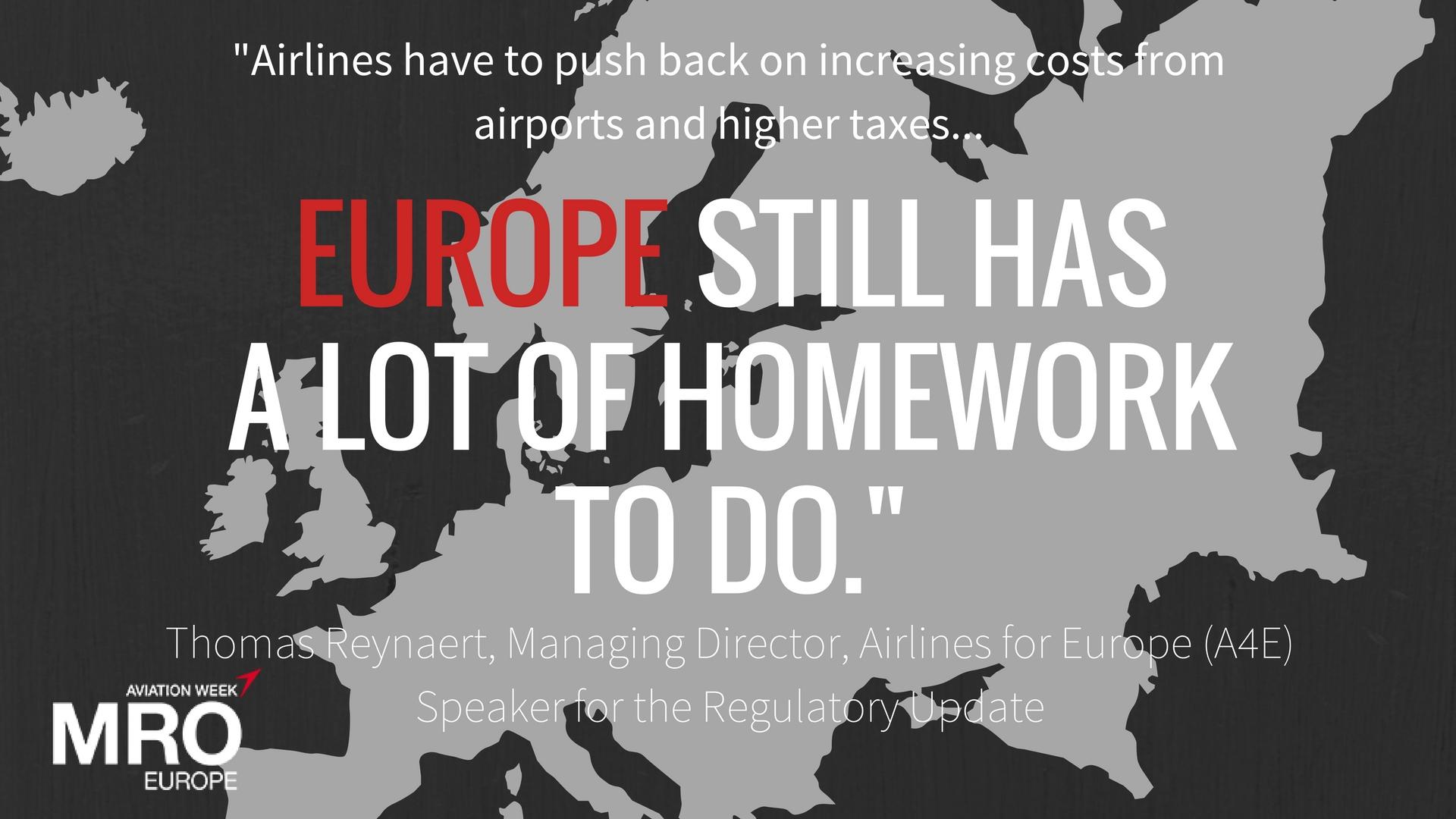
Europe Still Has A Lot Of Homework To Do
"Since the Commissioner called 2016 the year of delivery based on the presentation of the EU Aviation Strategy, we are expecting to see the first moves next year to help the sector to become more efficient. Europe still has a lot of homework to do. Unfortunately, airlines have to push back on increasing costs from airports, new or higher taxes from governments and continuing disruptions from air traffic controllers," Thomas Reynaert, managing director, Airlines for Europe (A4E).
Speaker for the Regulatory Update
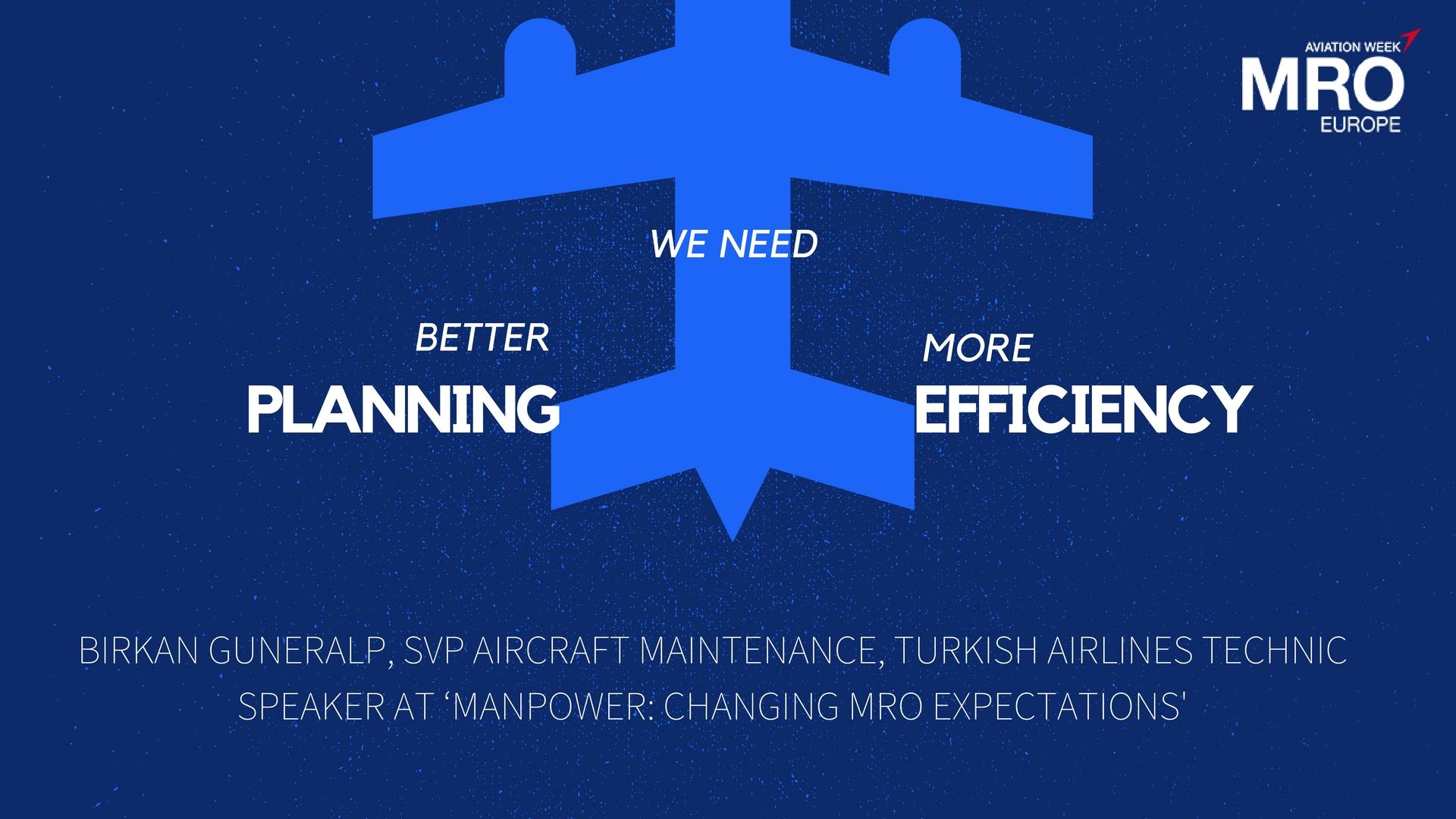
A Need For More Efficiency
Which strategies do you think will be adopted in the near future by the industry to prepare for future manpower shortages?
"I believe not only the maintenance side but the airline industry in general needs more efficiency. So, the shortage we see now will be covered with better planning and better efficiency," Birkan Guneralp, senior VP aircraft maintenance, Turkish Airlines Technic.
Speaker for Manpower: Changing MRO Expectations

Invitation To Create
What methods or arguments have you used to persuade/encourage your organization that investment into innovation and change is needed?
"Listening to our guests has been the greatest guidance behind our innovation programs, not only by asking them how they feel and what they need, but inviting them to create…new ideas and solutions to day to day challenges," Hector Paris, senior manager, market research, Etihad Airways.
Speaking at the Workshop 2: Inspiring Innovation
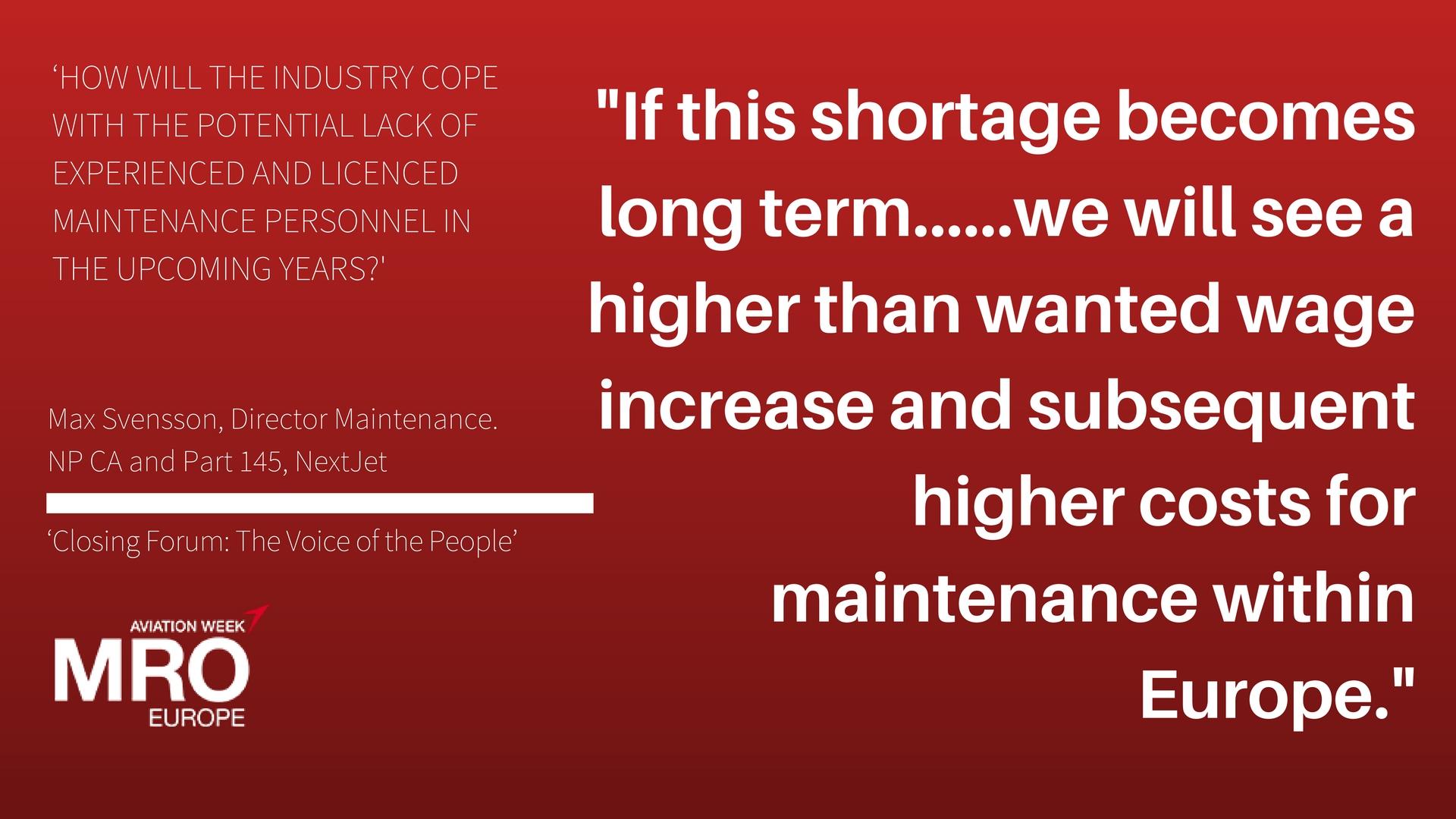
Potential Wage Increases And Higher Costs
How will the industry cope with the potential lack of experienced and licensed maintenance personnel in the upcoming years?
"We already see a shortage in competent maintenance personnel within Europe, and with the growing aviation sector, this shortage will most likely increase. If this shortage becomes a long-term factor, we will see a higher then wanted wage increase and subsequent higher costs for maintenance within Europe," Max Svensson, director maintenance, NextJet.
Joining the Closing Forum: The Voice of the People
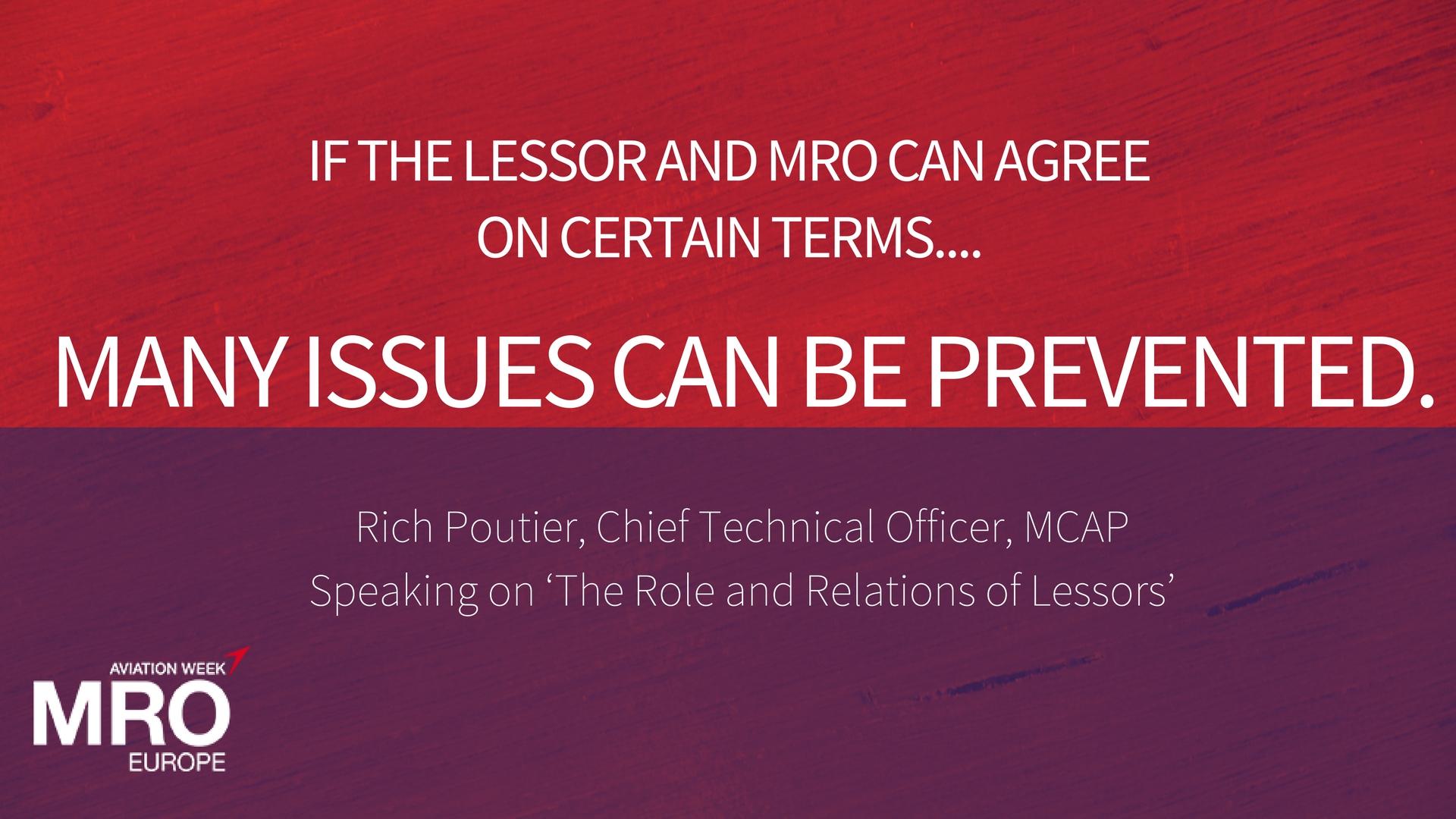
Many Issues Can Be Prevented
How is the role of the lessor changing in relation to the MRO?
"If the lessor and MRO can agree on certain terms prior to an aircraft or engine arriving at the MRO, many issues can be prevented. An example would include an agreement on payment terms, perhaps directly from lessor, when the lessee has paid maintenance reserves to lessor. This provides MROs with more confidence of payments and provides the lessor with more say in the workscope and process," Rich Poutier, chief technical officer, MCAP.
Speaking on The Role and Relations of Lessors
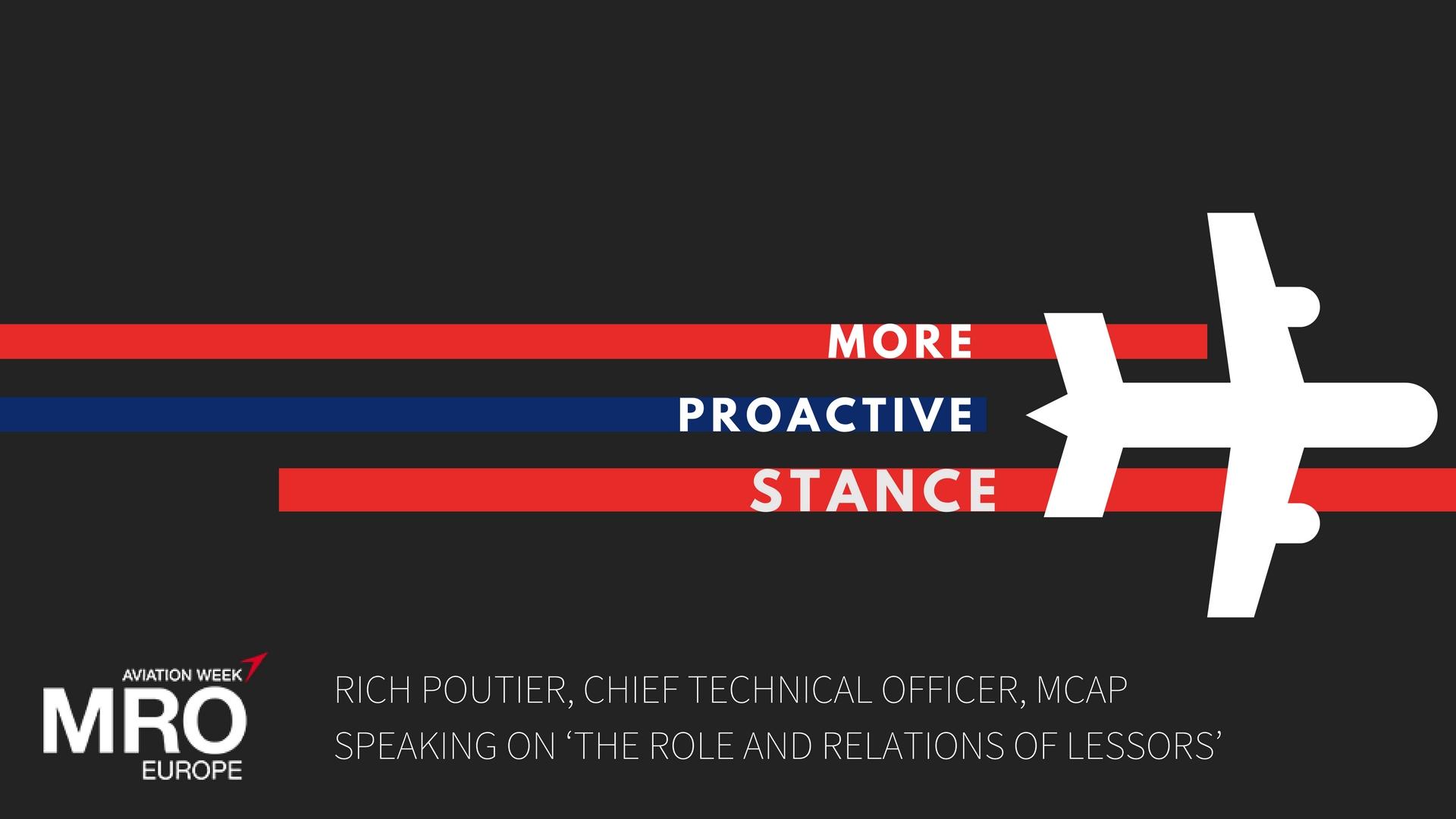
Comfortable With Open Communication
How do MROs work successfully with leasing companies?
"As direct customer?: Providing great flexibility and service at a good price. As a third-party participant at the MRO when the airline is the customer of the MRO, I see an opportunity whereby MROs take a more proactive stance to better understand the relative contract provisions between the airline customer and its lessor. MROs sometimes feel like they are in the middle of a sandwich, but they need to be comfortable with open communication between themselves, the lessor and airline customer," Rich Poutier, chief technical officer, MCAP.
Speaking on The Role and Relations of Lessors

The Bigger Picture
What is the biggest maintenance challenge for your airline?
"How to decrease the operating cost by adjusting maintenance season to the market requirements, due to the fact that Croatia Airlines operate with two aircraft types (A32Fam and Q400) on the market which has highly seasonal character. The main purpose is to link the maintenance activities to the master maintenance plan, which also includes third party contracted heavy maintenance activities, in order to control aircraft turn around time, cost and airworthiness.
To get a 'bigger picture' in the next few years, it is necessary to involve some available information in planning such as: company strategy decisions ( fleet expansion or changing the aircraft type or ageing program for current fleet..), third party long-term agreements and regulator requirements (FMS2-AD note, ADS-B out, fuel tank inerting system, etc.)," Silvestar Špehar, production planning and control manager, Croatian Airlines.
Speaker for Opening Panel Session: Customer Speak Out
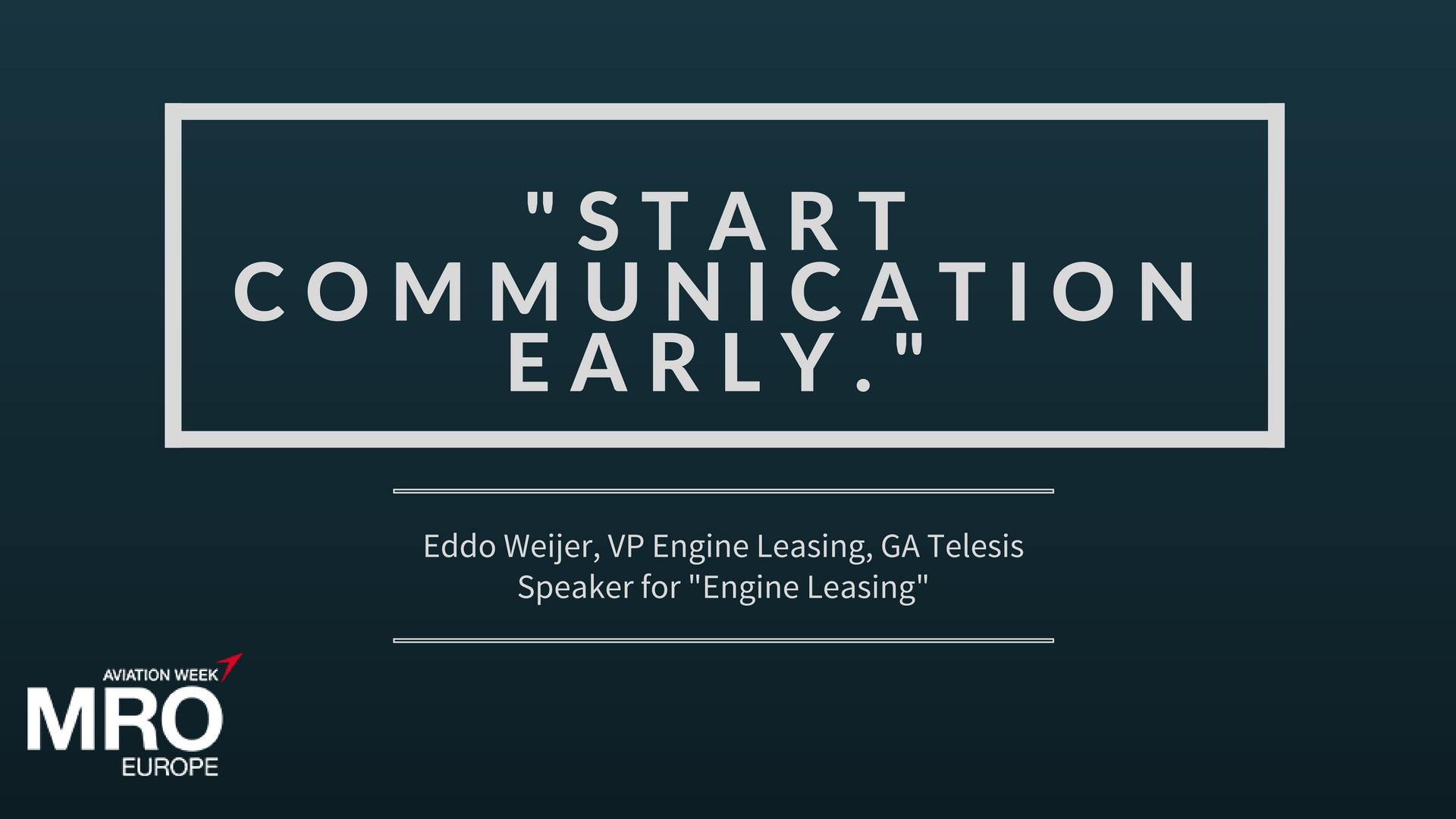
Start Communication Early
What strategies do you have in place/champion to ease the process of engine redeliveries and overcome the different and sometimes conflicting requirements of those involved?
"We have our own engine MRO capable of borescoping, performing repairs, test cell etc. Start communication early – communicate the return provisions in the lease, delivery location, who is going to perform the return, when and where. Have the QEC inventory list attached to the lease, as well as the required records required at lease return. For some customers, we need to provide a consistent set of paper work templates for them to fill out, Makes sure the engine is properly wrapped and preserved. Eliminate ship loose kit, as these items are hard to track and frequently get lost. Set time intervals to complete the return / paperwork, inspection / shipping – if a part is missing and hasn’t been provided within the grace period, we either charge them or they need to provide a replacement," says Eddo Weijer, VP engine leasing for GA Telesis.
Speaker for Engine Leasing.
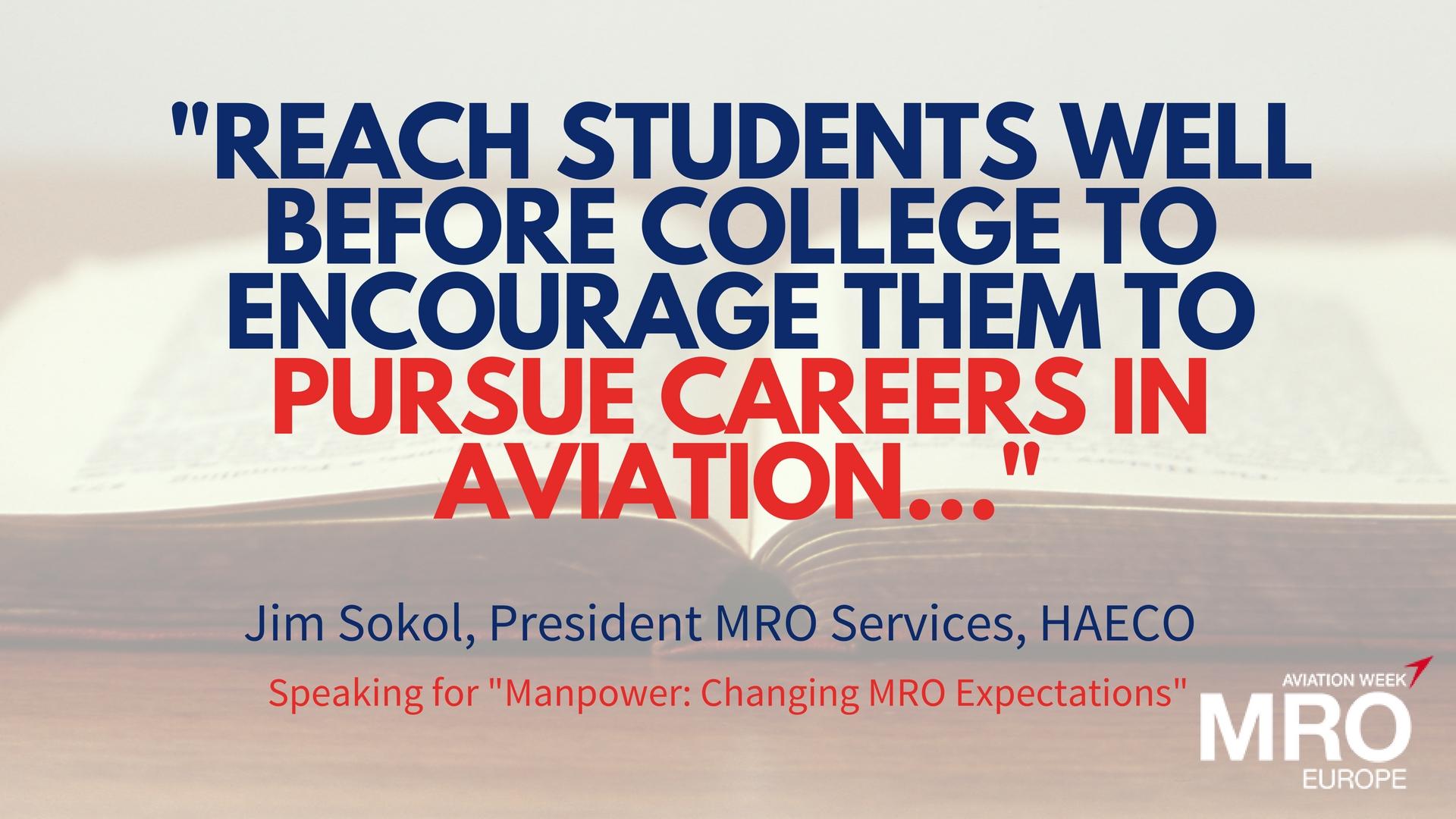
Reach Students Well Before College
"A strong connection to the people of our local communities creates opportunities to implement innovative methods to develop future technical talent to meet our employment forecasts. Reach students well before college to encourage them to pursue careers in aviation…creating previews of work opportunities for students before they reach high school," Jim Sokol, president MRO Services, for HAECO.
Speaker for "Manpower: Changing MRO Expectations"
See exclusive insights from speakers at Aviation Week's MRO Europe before the sessions in Amsterdam, October 18-20.